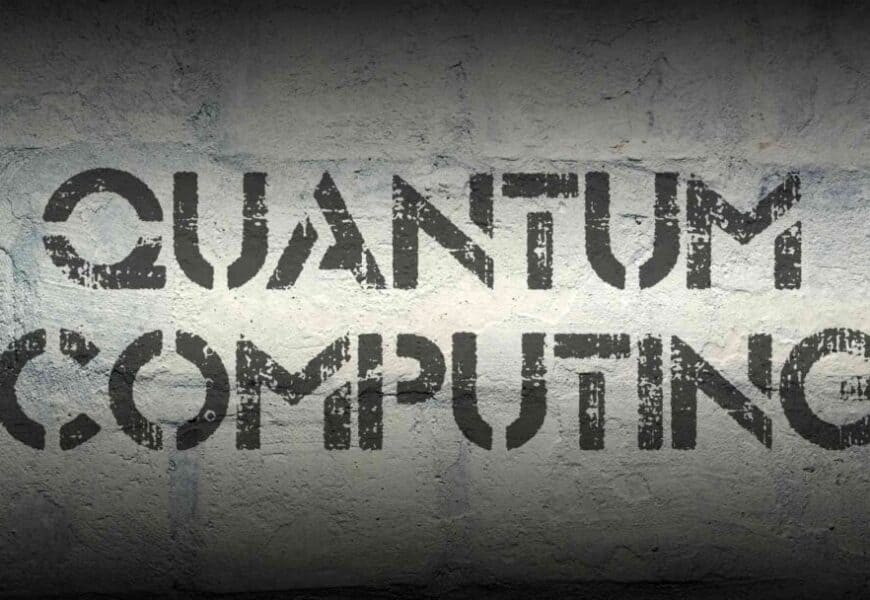Quantum computing is a revolutionary field that harnesses the principles of quant mechanics to process information in ways that classical computers cannot achieve. It represents a paradigm shift in the world of computing, promising to solve complex problems that are beyond the capabilities of classical computing.
What is Quantum Computing?
Introduction: Quantity computing utilizes bits or qubits to store and process information. Unlike classical bits that can only exist in a state of 0 or 1, qubits can exist in a superposition of states, enabling computers to perform calculations in parallel.

Development : This field has seen significant advancements over the years, with companies like IBM playing a crucial role in driving research and development in this area.
Quantum vs Classical Computing: quantity computing operates based on the principles of mechanics, offering the potential for exponential speedups in certain computational tasks compared to classical computers that rely on binary logic.
How Does Quantum Computing Work?
Quantum Mechanics Principles: quantity computing leverages mechanical phenomena such as superposition and entanglement to perform operations on states and execute algorithms.
Algorithms: Aalgorithms are specially designed to exploit the capabilities of specialized computers, allowing for efficient solutions to complex problems like factorization and optimization.
Quantum Information Processing: This information processing involves manipulating quantum bits using quantum gates to perform computations and store data in quantum systems.
IBM’s Role in Quantum Computing
IBM Quantum Systems: IBM has been at the forefront of this research, developing advanced systems that provide the infrastructure for information processing.
Quantum Processor Technology: IBM’s processors are designed to handle operations and implement algorithms efficiently, pushing the boundaries of computation.
Quantum Hardware Development by IBM: IBM continues to invest in the advancement of hardware, striving to create more powerful and reliable systems for diverse applications.
Applications
Cryptography using Quantum: cryptography leverages the principles of mechanics to secure communication channels, offering unprecedented levels of data protection.
Quantum Physics: This enables simulations of systems, aiding in the understanding of complex phenomena and accelerating research in physics.

Quantum Interference: quantity computing can analyze interference patterns, facilitating the exploration of behavior in various systems.
The Future
Potential Advantages: Computers could potentially offer a advantage by solving problems more efficiently than classical computers in fields like cryptography and optimization.
Impact on Industries: The integration of this technologies is poised to transform industries such as finance, healthcare, and logistics by enabling faster insights and optimized processes.
Challenges and Progress: Despite the immense potential, the field faces challenges like noise and error rates, prompting ongoing research efforts to develop fault-tolerant computers.

IBM’s in Quantum Computing
IBM’s Quantum Computers and Quantum Technologies
IBM is a key player in the field of quantity computing, having developed devices with increasing qubit counts and improved performance. Its contributions to technologies have facilitated advancements in hardware and software.
Projects by IBM
IBM is actively engaged in various quantity computing projects aimed at exploring new algorithms, applications, and capabilities of systems. These projects help drive the evolution of quantity computing and its integration into practical solutions.
Roadmap by IBM
IBM has unveiled a detailed roadmap for quantum computing. Moreover, it sets out milestones for creating fault-tolerant computers. Additionally, the plan aims to surpass the capabilities of classical computing. Furthermore, the roadmap highlights the potential of these technologies to revolutionize industries and scientific research.
Given that, you might want to check out our other insightful articles here.
FAQ
Q: What is quantum computing?
A: quantity computing is a type of computing that uses principles of mechanics to perform operations on data. Quantum computers do not use binary bits like classical computers. Instead, they use bits, or qubits. Qubits can exist in multiple states at the same time.
Q: How does a quantum computer differ from a classical computer?
A: Quantum computers leverage quantum mechanics to process information differently than classical computers. In contrast, classical computers use bits that are either 0 or 1. Meanwhile, quantum computers use qubits. Specifically, qubits can be in a state of 0, 1, or both at the same time. This is possible because of superposition and entanglement.
Q: What are some practical applications?
A: quantity computing could transform many fields. These include cybersecurity, drug discovery, optimization challenges, weather prediction, and artificial intelligence. Quantum computers may offer significant speedups for solving complex problems that are intractable for classical computers.
Q: How does IBM contribute to the field?
A: IBM plays a significant role in developing quantum technologies. It provides services such as the IBM Quantum Experience. This platform allows users to access IBM’s quantum processors through the cloud. IBM is actively working on advancing quantity computing hardware and software.
Q: What is quantum supremacy?
A: Quantum supremacy refers to the milestone where a quantum computer can outperform the best classical computer in certain tasks. Achieving quantum supremacy demonstrates the potential of quantum computers to solve problems that are beyond the capabilities of classical computers.
Q: What is quantum entanglement?
A: Quantum entanglement is a phenomenon involving qubits. These qubits are linked or correlated. The state of one qubit depends on the state of another. This dependency exists even if the qubits are physically apart. This property is fundamental and enables faster computations.
Q: How do quantum computers make use of quantum interference?
A: Quantum interference happens when the probability amplitudes of different quantum states mix. This can result in either constructive or destructive interference. Quantum computers exploit interference to perform calculations and achieve computational advantage over classical computers.














Great article! Excited to see how this technology develops.
Thanks for your comment, keep visiting entechonline-com-920500.hostingersite.com for more articles related to your interests.